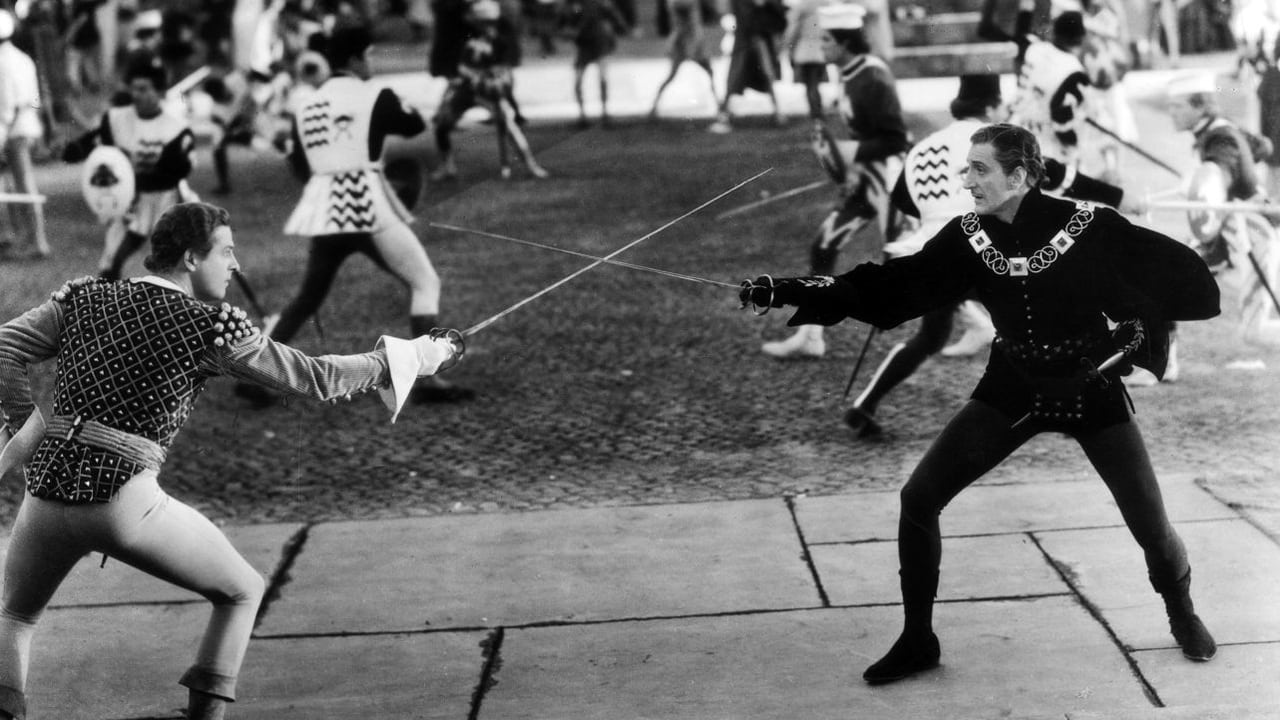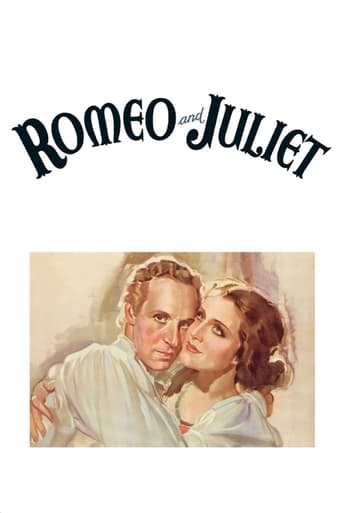AshUnow
This is a small, humorous movie in some ways, but it has a huge heart. What a nice experience.
Bluebell Alcock
Ok... Let's be honest. It cannot be the best movie but is quite enjoyable. The movie has the potential to develop a great plot for future movies
Yash Wade
Close shines in drama with strong language, adult themes.
joe-pearce-1
Reading these other reviews brought me to the point where I almost screamed at the inanity of the repetitive commentary about the ages of Howard, Shearer and Barrymore in particular, and a few others in general. Yes, the leads are all supposed to be teenagers, but I can assure these complainers that when this movie was made in 1936 - that's 82 years ago - only a devout Shakespearean would have realized that or given much consequence to it. The movie audiences of 1936 - and probably most of the movie audiences of today - almost certainly did not know that the leads were supposed to be about 16 and 14 respectively. In fact, the ages are not mentioned anywhere in the play, so even those two numbers are somewhat questionable facts. And I imagine that, even with Shakespeare, there would have been some complaints about showing a 14-year-old girl having sex with a 16-year-old-boy back then, and theaters might have been raided if they used actors of that age to play the roles. (Remember that as late as in 1962, they had to add about four years to the age of Lolita to even get LOLITA made, and they had to hire an actress who was 16 rather than 12 or they might have all been arrested!). One simply accepted the leads as the youngest members of their warring families, but not necessarily as teenagers. THAT'S A FACT! Yes, the stage lends distance to our acceptance of such characters' ages, and if you think Barrymore at 54 was old for Mercutio, please be advised that in 2016, that character was played on the London stage by Derek Jacobi, 78 at the time! Even Olivier was far too old (and actually looked it, even with blond hair) to play Hamlet in 1948, and he won the Academy Award for it. So, please, let's stop all this nonsense about age. If you'd prefer Leonard Whiting and Olivia Hussey, fine, but don't take it out on Howard and Shearer. As for those two, I've always loved Howard but feel that this is one of the least impressive film performances he ever gave, whereas I think Juliet may be Shearer's best film performance - and I think she looks a lot younger than her 34 years here anyway. She certainly acts it, which cannot be said for Howard. Barrymore, who was past his 40th birthday when he first did his famous Hamlet on the stage, is properly hammy here, but I couldn't understand much of him in his set speeches (like the Queen Mab one), and I always love Edna May Oliver, but also couldn't understand much of her dialogue. The actor I thought most natural of all, and who is hardly mentioned anywhere in these reviews, was Reginald Denny as Benvolio. Anyway, I find it a delightful film throughout but do wish they could have granted my dearest wish and had Claude Rains dub Andy Devine!
Hitchcoc
I have avoided this version for a long time. Having been brought up on the Franco Zefferelli version with Whiting and Hussey, I've always rejected one where the characters are much too old. But once one gets past that limitation, this moves quite well. And, there certainly are some spectacular set designs. The lines are delivered in a rather unemotional and mature way. Perhaps that works against the message. But the studio system put these heavyweights in play because of the big contracts. Once thing. Andy Devine! Still, the spectacle works and it is a truly sad ending.
MissSimonetta
This adaptation of Romeo and Juliet has never been highly regarded. Not a great success commercially or critically at the time of its release, even now this version seems hated upon by many, mainly because the leads are much too old to be playing teenagers and the film is so covered in MGM gloss that it occasionally seems almost vulgar. However, I cannot bring myself to disown it entirely, and I do believe it has its merits.What saves this film from total mediocrity are the sets and costumes. The sets are just beautiful and the costumes, while sometimes a little ludicrous and over the top, are pleasing to the eye. The black-and-white cinematography adds a dreamy, romantic touch to the film.The performances are all over the map. Leslie Howard and Norma Shearer are adequate as the titular lovers, however, they lack passion. When Romeo learns he is banished, he does not cry out or moan, but reacts as though he's just lost a game of checkers. Shearer's Juliet is demure and sweet, but only occasionally does she really come alive. Basil Rathbone is excellent as Tybalt. While some find John Barrymore's Mercutio to be the highlight of the movie, he does absolutely nothing for me and gets on my nerves. Everyone else was passable.If you want to watch a great one or try to get students interested, then you're much better off with the 1968 film. Nevertheless, if you're curious, there's still some good things to come away with.
wes-connors
Norma Shearer and Leslie Howard play Shakespeare's star-crossed young lovers Juliet Capulet and Romeo Montague. As this version of "Romeo and Juliet" is a relatively faithful adaptation of Shakespeare's original play, the ages of the characters are relevant; thus, Ms. Shearer, Mr. Howard, and others are, obviously, too old for the parts. That being said, this is still an entertaining film, well directed by George Cukor, and expertly photographed by William Daniels. The production, sets, and lighting are extraordinary. Shearer is especially well lighted; and, she performs Juliet in earnest. John Barrymore (as Mercutio) and Basil Rathbone (as Tybalt) are more fun than a barrel of Montagues. You live by the sword, die by the sword. ******* Romeo and Juliet (8/20/36) George Cukor ~ Norma Shearer, Leslie Howard, John Barrymore, Basil Rathbone

